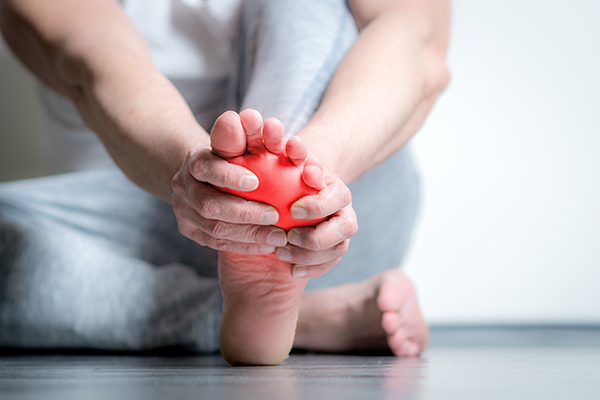Study shows compounds in ancient herbal medicine can help increase longevity
01/20/2023 / By Zoey Sky

Having good lifestyle habits like exercising regularly and eating a balanced diet are key to improving your well-being and boosting longevity. But can ancient remedies help people live longer?
According to a study, one herb often used in Traditional Chinese Medicine (TCM) may have longevity-extending and anti-aging properties.
The study was conducted by a research team from the Department of Anatomy and Cell Biology at National Taiwan University and published in the journal Nature Communication.
For the study, the researchers selected 33 single herbs and six herbal formulas. From this group, they discovered that Psoralea corylifolia may help boost longevity.
Psoralea corylifolia’s health benefits
The results revealed that the ethanol crude extract of P. corylifolia extended the replicative lifespan of yeast. Since the lifespan of budding yeast can be easily quantified, the research team used it as a simple model to study aging.
Replicative life span refers to the number of times a yeast cell can divide and proliferate before it dies or the number of offspring cells it can produce.
Next, the scientists further purified P. corylifolia and conducted mass spectrometry analysis. They isolated 22 compounds from the herb.
They verified and identified the activities of these compounds using the mother enrichment program (MEP) system tests, which were designed to monitor replicative lifespan. Corylin, one of the compounds, extended the life span of aged mice given a high-fat diet. (Related: Study suggests compounds in goji berries can boost eye health.)
The researchers also found that corylin prolongs life and reduces the aging process by inhibiting mTOR, an enzyme with a crucial role in regulating cell division and growth.
They discovered that adding corylin to the diet significantly prolonged the life span of aged mice fed a high-fat diet. Data showed that there was a 20 percent reduction in mortality at 102 weeks in the corylin-fed group of mice compared to the control mice.
What is Psoralea corylifolia?
P. corylifolia (Cullen corylifolium) is the ripe fruit of a leguminous herb. It is also called bakuchi or babchi.
The herb grows up to 60 to 120 cm in height, with oblong, flat and brownish-black seeds. It bears yellow and bluish-purple flowers, with small fruits.
Bakuchi grows in tropical and subtropical regions across the globe and it is native to China and South Africa. Bakuchi can also be found in the Himalayan regions.
It was recorded in a TCM classic called “Lei’s Treatise on Herb Processing,” which was written by Lei Wei during the Southern and Northern Dynasties (420 to 589).
P. corylifolia was also recorded in the “Compendium of Materia Medica.” The book describes P. corylifolia’s ability to “strengthen the kidney and treat low back pain, frequent urination, nocturnal enuresis in children, chronic tooth pain and other diseases.”
TCM: Your kidney health affects overall well-being
According to modern science, the kidneys help maintain blood composition by removing waste and excess water. But in TCM, kidneys have a broader range of functions, from growth and maturation to reproduction.
The term “kidney” in TCM doesn’t refer to a single kidney organ but to the kidney meridian. It is a comprehensive system that includes the urogenital system, endocrine system, immune system, pituitary gland and adrenal axis.
In TCM, it is believed that kidneys are in charge of human growth and that the essence stored in the kidneys is the energy of life, which determines your person’s vitality. This means that your kidney health is linked to your lifespan.
Here are some tips to help boost your kidney health and longevity:
Exercise regularly to stay fit
Regular exercise can help you maintain a healthy weight and lower the risk of chronic kidney disease. Staying fit can also help reduce your blood pressure and boost your heart health, which can both help protect against kidney damage.
If you can’t engage in vigorous activities like running, you can still take part in other activities like walking or dancing. The important thing is to find an activity that you enjoy so you can follow a routine.
Follow a healthy diet and maintain a healthy weight
If you are overweight or obese, you are at greater risk for many health problems that can damage your kidneys, such as diabetes, heart disease and kidney disease.
To reduce the risk of kidney damage, follow a nutritious diet and limit your intake of processed meats, sodium and other kidney-damaging foods. Eat a lot of fresh foods that are naturally low in sodium like blueberries, cauliflower, fish and whole grains.
Stay hydrated
Drinking plenty of fluids is important because it helps you stay hydrated, which is good for your kidneys. Water helps clear sodium and toxins from the kidneys and lowers the risk of chronic kidney disease.
Aim for at least 1.5 to two liters of water every day. Keep in mind that how much water you need also depends on your health and lifestyle. If you have had kidney stones, drink a bit more water to help prevent stone deposits in the future.
Quit smoking
If you smoke, quit now to protect your kidneys. Smoking damages the blood vessels, which can cause slower blood flow throughout the body and to your kidneys.
Additionally, smoking also increases your risk of developing kidney cancer. Fortunately, quitting smoking will help lower cancer risk, although it will take many years to return to the risk level of a person who has never smoked.
Visit Herbs.news to learn more about medicinal herbs that can boost longevity.
Watch the video below to know more about chronic kidney disease and how to improve your kidney health.
This video is from the TruthAndFreedom1 channel on Brighteon.com.
More related stories:
Compounds in oriental penthorum found to be promising treatments for MRSA infections.
Jingfukang: The TCM herbal medicine that stops lung cancer in its tracks.
Cinnamon found to help prevent Alzheimer’s disease.
Sources include:
Submit a correction >>
Tagged Under:
aging secrets, alternative medicine, anti-aging, babchi, Chinese medicine, herbal medicine, Herbs, natural cures, natural medicine, phytonutrients, plant medicine, Psoralea corylifolia, research, TCM
This article may contain statements that reflect the opinion of the author
RECENT NEWS & ARTICLES
COPYRIGHT © 2017 ALTERNATIVE MEDICINE NEWS





















